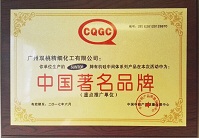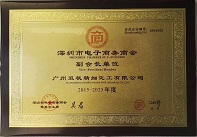
![]() E-mail: admin@gz-chemical.com
E-mail: admin@gz-chemical.com
Email us,best price and silane solutions for you!
Tel:+86 (20) 29035969

![]() E-mail: admin@gz-chemical.com
E-mail: admin@gz-chemical.com
Email us,best price and silane solutions for you!
Tel:+86 (20) 29035969


Two kernels of the same idea—cultivating protein quality in cereal grains—are reaching
maturity at the University of Nebraska–Lincoln.
The quality of protein often gets overshadowed amid the spotlight on its quantity. But that
quality—the presence or absence of amino acids essential to the diets of humans and
livestock—occupies the mind of Nebraska's David Holding.
Holding and his colleagues at the Beadle Center have spent years working to raise levels
of a vital amino acid, lysine, that's scarce in the protein of several cereal grains. By
adopting different approaches—one traditional, the other emergent—the team has now
managed to roughly double the lysine content of both popcorn and sorghum.
Higher lysine could add economic value and broaden the appeal of popcorn, the research
ers said, while enhancing the nutritional value of the movie-theater favorite. Boosting lysine
in sorghum should make the drought-resistant crop a more complete source of nutrition in
the developing world, where it sometimes ranks as a dietary staple, and for livestock in the
United States.
Popping out the dent
Dent corn, a worldwide crop and the signature variety of the Midwest, is deficient in lysine.
But in the 1990s, researchers successfully bred a gene variant known as opaque-2 into de
nt corn. In lowering the production of normally dominant prolamin proteins, opaque-2 allowe
d for a rise in non-prolamins, those containing lysine and another essential amino acid,
tryptophan. The resulting variety—Quality-Protein Maize, or QPM—has since helped combat
malnutrition in many developing countries.
With the backing of Conagra Foods, Holding decided to try the same in popcorn.
"It turns out that that's really difficult to do," said Holding, associate professor of agronomy
and horticulture.
The problem was at once simple and complex: Popcorn containing opaque-2 wouldn't pop.
And that problem stemmed from what's in its name: Opaque-2 tends to turn popcorn's
normally hard, glassy kernels into softer, chalkier forms resistant to popping.
Agronomists had previously managed to breed the undesirable trait out of the QPM dent
corn, which was otherwise more susceptible to pests and harvesting damage. But they did
so mostly without knowing which genes helped restore the kernels' glassy consistency.
Holding had devoted considerable time to identifying swaths of the corn genome responsible
for restoring that glassiness. So he set out to cross-breed multiple generations of the QPM
dent corn with popcorn varieties suspected to contain the restorative genes.
Guangzhou Double Peach Fine Chemical Co.,Ltd
Address: No 3401 Huangpu East Road, Huangpu District, Guangzhou, China
Tel:+86 (20) 29035969 Fax:+86(20)29035979
Tel/Wechat/Whatsapp:0086 13826126978 admin@gz-chemical.com